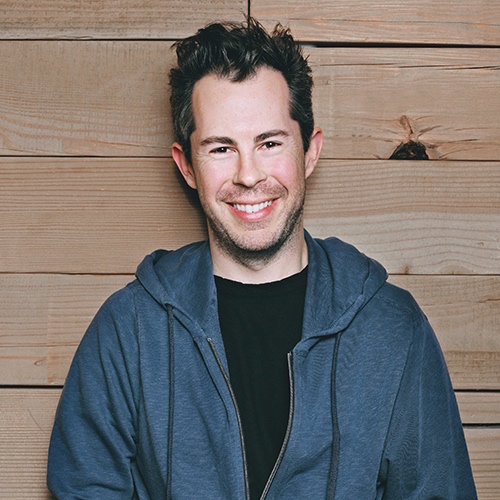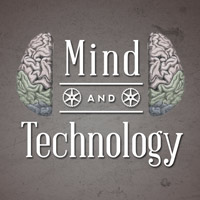 Faith & Science
Faith & Science
 Medicine
Medicine
You Shall Be as Gods: The Rise of the Digital Maoists

Bloomberg Markets carries the headline "Google Wants You to Live Forever." From the article:
"If you ask me today, is it possible to live to be 500? The answer is yes," Bill Maris says one January afternoon in Mountain View, California. The president and managing partner of Google Ventures just turned 40, but he looks more like a 19-year-old college kid at midterm. He’s wearing sneakers and a gray denim shirt over a T-shirt; it looks like he hasn’t shaved in a few days.
Behind him, sun is streaming through a large wall of windows. Beyond is the leafy expanse of the main Google campus….
Here’s where you really figure out who Bill Maris is: on his bookshelf. There’s a fat text called Molecular Biotechnology: Principles and Applications of Recombinant DNA. There’s a well-read copy of Biotechnology: Applying the Genetic Revolution. And a collection of illustrations by Fritz Kahn, a German physician who was among the first to depict the human body as a machine. Wedged among these is a book that particularly stands out to anyone interested in living to 500. The Singularity Is Near: When Humans Transcend Biology, published in 2005, is the seminal work by futurist Ray Kurzweil. He famously predicted that in 2045, humankind will have its Terminator moment: The rise of computers will outpace our ability to control them. To keep up, we will radically transform our biology via nanobots and other machines that will enhance our anatomy and our DNA, changing everything about how we live and die.
"It will liberate us from our own limitations," says Maris.
 A total joke. There’s a story here, though, as Silicon Valley embraces a kind of techno-materialism that disparages traditional religion as sorcery and then ends up with something that actually looks quite a bit like sorcery in its place. Technologist Jaron Lanier has written about this. Lanier calls the movement Digital Maoism, source of a "new online collectivism." Whenever you hear about some billionaire in the Valley talking about the Singularity, or the Web evolving into a collective mind, it’s actually part of an underlying worldview. A major piece of the worldview is to use science to create a Heaven on Earth. And eventually to create a Heaven in the cloud, when computers go "spiritual."
A total joke. There’s a story here, though, as Silicon Valley embraces a kind of techno-materialism that disparages traditional religion as sorcery and then ends up with something that actually looks quite a bit like sorcery in its place. Technologist Jaron Lanier has written about this. Lanier calls the movement Digital Maoism, source of a "new online collectivism." Whenever you hear about some billionaire in the Valley talking about the Singularity, or the Web evolving into a collective mind, it’s actually part of an underlying worldview. A major piece of the worldview is to use science to create a Heaven on Earth. And eventually to create a Heaven in the cloud, when computers go "spiritual."
No one seems to notice how weird it all is, and how fantastically unlikely.
The central paradox of the Digital Maoist perspective is that computation is viewed as having or gaining consciousness, while actual people are mere machines. Crowds and machines are imbued with the very intelligence and soul and consciousness that have been denied to persons, as if somehow many "computers made of meat," as Marvin Minsky once put it, equal an actual conscious mind.
A strong critic of the movement, Lanier wrote back in 2010, "Bits are presented as if they were alive, while humans are transient fragments." Lanier’s words are even truer today, as no strong humanist strand has replaced the Web 2.0 "swarm" model that views individual humans as subordinate to crowds and machines.
So while the technology we create is hurtling towards consciousness, we are to be understood as machines to be reverse-engineered. The eschatology of this worldview replaces the traditional Rapture with the Singularity, where people can finally upload their consciousness into the cloud, and live forever (if on Linux servers). As a stepping-stone to this vision, the Digital Maoists are obsessed in the meantime with using technology to extend and better our boring and limited existence as mere human beings. Doubling, quadrupling, or otherwise vastly extending our healthy lifespan is a favorite notion, as evidenced in Maris’s otherwise puzzling interest in living for five hundred years.
Additional interests include extending our intelligence, our strength, and our sex appeal by fusing our human bodies with digital technology. Sure, we have the hearing aid. But imagine having the Web soldered into your cortex with advanced neurobiological prosthetics. Enthusiasts call this Transhumanism, and link it to the idea of evolution, suggesting that the next evolutionary step is to a Transhuman, where human nature itself has evolved into something higher, by fusing with digital technology.
A computer when viewed as a piece of technology is grand and spiritual and worthy of the mystery of consciousness, but a computer viewed as a human brain is mere materialism. The cultural implications of this rubbish — that computational bits are more important than personhood — are vast, and troubling. If these ideas were taken to heart, not only paper books would be jettisoned but, much worse, so would creative artists.
I’ve spent a lot of time wondering about this worldview; in the end, I think you have to explain Marxism or scientific materialism itself to really grab it at the root. Expunging the spiritual world of religion leaves a black chasm for the soul, and it’s not long before that chasm is filled again with some new faux faith, concocted this time from the minds of individuals in an ad hoc way and, to allay any criticism, under the banner of science.
I wish I could laugh it off as California: Hollywood has its Scientology, and Silicon Valley its Singularity. But it goes deeper than that, I’m afraid.
Image: Bill Maris, by Melahno (Own work) [CC BY-SA 3.0], via Wikimedia Commons.
